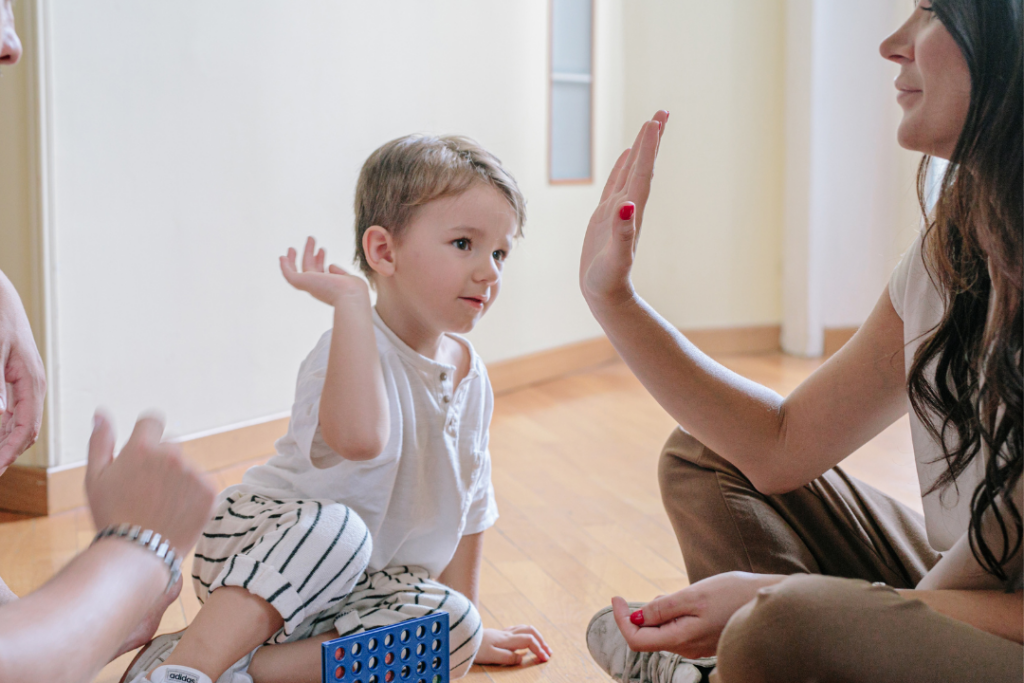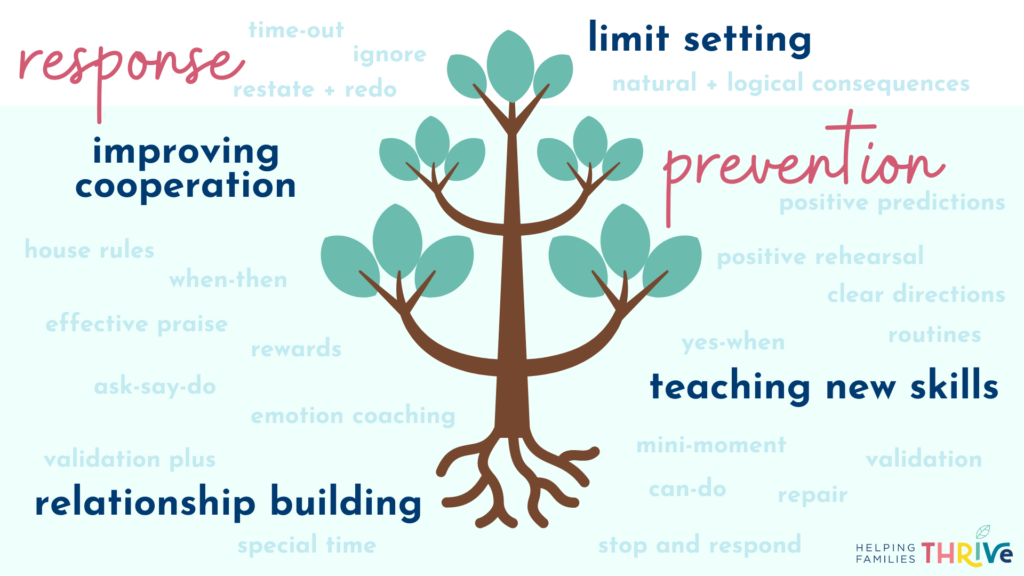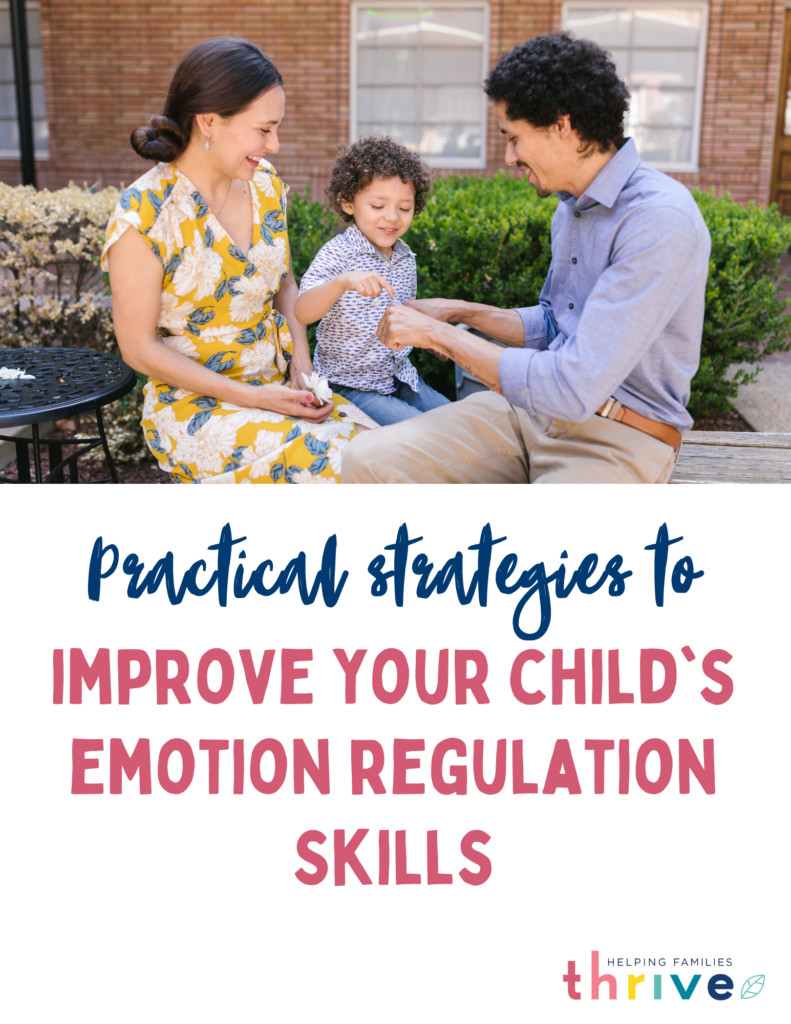
As a parent, you want nothing more than to provide the best for your child. And with the rise of social media, it’s become easier than ever to access parenting advice. In fact, according to a recent survey, 80% of parents use social media for health information. Unfortunately, a lot of this information isn’t backed by science, lacks nuance, or is overly rigid (aka “If you do XZY with your child, bad things will happen.”). This has left a lot of parents feeling unsure and anxious.
There is an important difference between parenting trends and parenting science. The former is driven by whoever has the biggest social media account, the catchiest catchphrases, or the best PR team. However, the latter is what can actually give parents peace of mind. Let’s cut through some noise and get back to the basics.
The noise: It’s not in your head
The rise of the internet and social media has led to unprecedented access to information. This has many advantages as parents are easily able to seek out information, empower themselves, and better advocate for their children. Voices that were previously marginalized have bigger platforms and information is increasingly democratized.
However, these many benefits come with some notable downfalls. First, the sheer amount of information has led parents to think “more is better”. Many people are now getting so lost in consuming the vast, often contradictory information, that they lose authentic connection or sacrifice their own well-being. Parents become so preoccupied with becoming this idealized, unrealistic version of a parent that they lose the ability to connect with their child and their authentic selves. It is hard to parent when you are always ‘in your head’.
The problem with parenting “camps”
As parents begin to explore these parenting messages and recommendations, it’s natural for them to feel more aligned with some perspectives than others. Connection and solidarity are beautiful but beware of solidarity turning into divisiveness via parenting “camps” (e.g., attachment parenting, gentle parenting, conscious parenting, respectful parenting, etc.). As we become invested in our “camps,” we may become closed off to alternatives.
When does alignment with a parenting philosophy devolve into zealot-like adherence to a parenting “camp”? In our opinion, it’s when membership to a parenting “camp” comes with the message that you must subscribe to every tool and every opinion of that camp. This leads to a lot of pressure to get things “right”, and every parenting decision begins to feel like a make it or break it moment.
If you spend much time on social media parenting pages or reading parenting books, the following sentiments may feel familiar:
- “Encourage your child but don’t praise them too much otherwise they will become people pleasers and end up in bad relationships.”
- “It’s important to set boundaries otherwise you’ll be too permissive, but never use adult-imposed consequences because that’s too punitive.”
- “Pick up your baby immediately when they cry so they feel secure, but make sure not to respond too quickly to your baby or they will never learn to self settle.”
- “Take breaks to calm yourself down when things get escalated, but never take space from an upset child because they will feel abandoned and have attachment problems for THE REST OF THEIR LIVES…”
Never mind cultural differences, personality differences, or developmental differences. Never mind the fact that there is a diverse range of parenting practices across the globe that can lead to healthy outcomes for children. We are being sold some cookie cutter messages here.
So now we have a whole lot of white knuckling going on. Parents are anxious. They are fearful of messing up. They must do everything “right” or else. But parents now have so much pressure to provide comfort and positivity to every behavior that many eventually explode.
The rise of intensive parenting
So who benefits from these parenting wars? Not parents, and certainly not the children.
But this is good, right? We want to be good parents. People are invested! People want to raise good humans.
YES! This it is fantastic that parents care so much. And, we can take it too far!
In fact, there is a new body of research examining the risks of the pendulum swinging into what has been deemed “intensive parenting” and the misuse of neuroscience to sell parenting products and advice (referred to as neurobabble and neuroparenting).
Here are a few key findings from this work:
- Parenting books and early childhood policy documents increasingly refer to neuroscience to support their parenting advice, yet the science is often oversimplified and extrapolated inappropriately (e.g., brain imaging research on severely neglected kids gets translated into regular parenting situations) – see summary of this here.
- According to this research article, the rise in intensive and “brain-based” parenting runs the risk of “changing responsive parenting within a normal range, into behavior that better would be called hyper-parenting, intensive parenting or even paranoid parenting“.
- The trend of intensive mothering and pressure to maximize children’s brain development is associated with increased stress, exhaustion, anxiety and guilt for moms.
- A summary of the research on intensive parenting found that it negatively affects the well-being of both mothers and fathers.
Back to basics: What does the research say about parenting?
With all this parenting information out there, let’s remember that one well-established finding is that parental well- being matters. If striving for parenting perfection threatens our own mental health, then we need to press pause and get back to the basics.
The parenting style that has been most frequently shown to have the best outcomes combines high warmth with boundaries (this is known in the research as Authoritative parenting). For example, a recent meta-analysis looked at 1,435 studies on parenting styles and behavioral problems in youth. This analysis found that authoritative parenting, parental warmth, high behavioral control, and autonomy promoting were related to less behavioral challenges in kids. In contrast, harsh discipline practices, and authoritarian, permissive, and neglectful parenting styles were associated with more behavior concerns.
So how do we get there? Thankfully, decades of research provide us with concrete tools for striking this balance of warmth and boundaries in our parenting! When identifying effective tools, we at HFT focus on only the tools and programs that have the highest level of research to back them up. There is a difference between parenting advice that might sound good in theory and that which is backed by hard evidence.
You can determine how much evidence a given program has by looking at the California Evidence-Based Clearinghouse here. Examples of programs with the highest level of support include Positive Parenting Program (Triple P) and The Incredible Years.
This is where we can breathe a collective sigh of relief. These top programs, the ones with the MOST evidence to support their effectiveness, all share common core components! While different in tone and terminology, their foundations are the same.
Importantly, the bulk of positive outcomes from these programs come from working with us, the parents and caregivers. We are the change agents! These evidence-based programs provide specific strategies to help parents implement Authoritative parenting.
In our online parenting course, Essentials, we conceptualize the overlapping components of top parenting programs in the HFT Healthy Parenting Tree, which we describe in detail in this blog post.
Essentially, effective parenting programs teach parents skills within these four categories:
- Relationship building
- Identifying and teaching missing skills
- Improving cooperation
- Limit setting
Importantly, evidence-based parenting programs teach these parenting skills in a specific order and this order in important. They all start with relationship building and end with limit setting.
It is important to respect and accept differences in parenting journeys and the needs of individual children. Some families may not need a whole lot of limit setting strategies once they’ve worked their way up the tree. For others, even with all the prevention in place, the top of the tree is crucial.
A recent meta-analysis of parenting interventions looked at which components of the interventions were most effective (Leijten et al., 2019). They found that for families with high levels of disruptive behaviors, programs that taught parents non-violent discipline strategies (such as natural/logical consequences) led to more improvements in children’s outcomes than programs without these skills. When parents have effective, safe alternatives to harsh punishments, they are going to be more effective in responding to challenges that arise. This is better for both parents and children.
Your positive parenting journey
Remember, each day you are striving to balance warmth and boundaries. If something blows up spectacularly, go back to the foundations of Authoritative Parenting. Take it one step at a time.
This parenthood adventure will be a wild ride. The best we can do is seek out the highest quality information possible, use the tools the best we can, and adjust course when needed.
-Helping Families Thrive
Need more help? We recommend reaching out to a provider or resource that is grounded in evidence-based practice. Our Essentials online parenting course teaches the skills from the top evidence-based programs. You can learn more about it here.
Additional Parenting Resources
Parenting programs with highest level of research support:
- The Incredible Years
- Positive Parenting Program
- Parent Child Interaction Therapy
- Parent Management Training
Parenting programs with strong research support:
- Tuning in to Kids
- Collaborative and Proactive Solutions (Previously called Collaborative Problem Solving)






